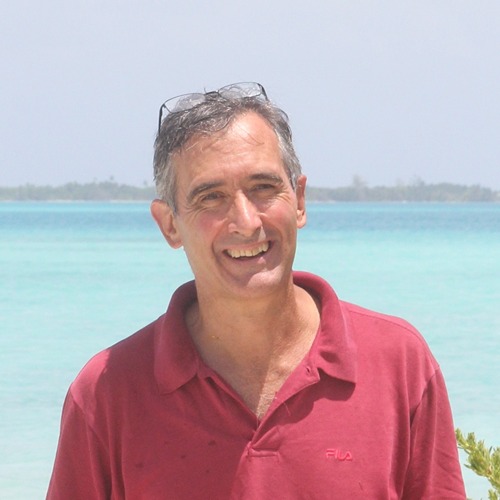Agenda
Registration Day: Friday, February 13, 2026 from 4:00 – 6:00 p.m.
Location: Al Khazoma Hotel Lobby
Registration check-in day at Al Khazoma Hotel Lobby
Day 1: Saturday, February 14, 2026
Day 2: Sunday, February 15, 2026
Day 3: Monday, February 16, 2026
Times are displayed in +03
-
Available On Demand
Confirmed Speakers
 Andrea Grottoli The Ohio State University, USA
Andrea Grottoli The Ohio State University, USAProfessor Grottoli has been studying coral reefs for 30 years. She and her team are currently focused on determining what drives resilience in corals in the face of climate change and developing blue technology for enhancing coral survivorship and restoration success. She uses a combination of biology, physiology, geochemistry, and technology tools in her research coupled with fieldwork and scuba diving. She has a pending patent for the UZELA technology (Underwater Zooplankton Enhancement Light Array) — a device that locally concentrates zooplankton so that corals have more to eat, grow more, and die less. She has published over 100 peer-reviewed journal articles with some in such journals as Nature, Global Change Biology, and Nature Communications, and she has been featured on National Public Radio and several websites and newspapers. Her recent Science Sundays talk “Can We Save Coral Reefs?” and Voices of Excellence podcast “Will Coral Reefs Survive?” summarizes her current work and passion for coral reefs. She has been recognized with several awards including Fulbright Scholar (2020-21), the International Coral Reef Society's Mid-Career Award, and the Rachel Carson Lecturer of the Ocean Sciences Section of the American Geophysical Union. She currently serves on the Technical Advisory Committee for the National Coral Reef Institute, the Scientific Council of LabEX CORAIL, and the Coral Restoration Consortium's Genetics Working Group. She is deeply committed to training the next generation of coral reef scientists and over her career has advised 17 graduate students, 6 postdocs, 37 undergraduate research theses, and supervised over 100 undergraduate students researchers and volunteers in her lab. Professor Grottoli is the College of Arts and Sciences Distinguished Professor of Earth Sciences at Ohio State University, a Fellow of the American Association for the Advancement of Science (AAAS), a Fellow of the International Coral Reef Society (ICRS), and past-president of the International Coral Reef Society.
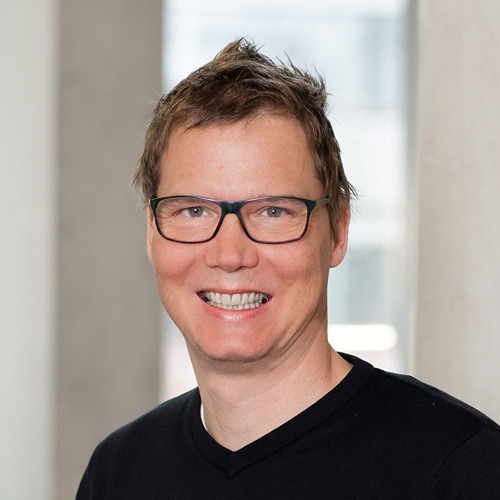 Christian Voolstra University of Konstanz, Germany
Christian Voolstra University of Konstanz, GermanyDr. Christian Voolstra is a coral reef scientist whose research investigates how symbioses and microbiomes shape coral resilience to environmental change. His work integrates ecological, molecular, and microbial approaches to understand the function of coral metaorganisms and to develop tools with real-world impact. His work emphasizes the need for experimental standardization and robust analytical frameworks to enable broader comparability and insight across studies. Dr. Voolstra has led and contributed to the development of several open-access community resources, including the SymPortal.org platform for coral algal symbiont typing, standardized CBASS short-term thermal stress assays, the reefgenomics.org data repository, and the Tara Pacific expedition data collection. These efforts aim to foster accessibility, interoperability, and integration of research data across the global coral reef science community.
Dr. Voolstra has published over 300 peer-reviewed articles, contributed to multiple book chapters, and holds patents related to bioactive compounds from marine organisms. He is the current President of the International Coral Reef Society (ICRS) and serves as scientific co-director of the upcoming Tara Coral expedition. He earned his PhD from the Institute of Genetics in Cologne, completed postdoctoral research at the University of California, and was a faculty member at the Red Sea Research Center at KAUST, Saudi Arabia, where he served as Associate Director from 2016 to 2019. Since 2019, he is Professor (Chair) of Genetics of Adaptation in Aquatic Systems at the University of Konstanz, Germany.
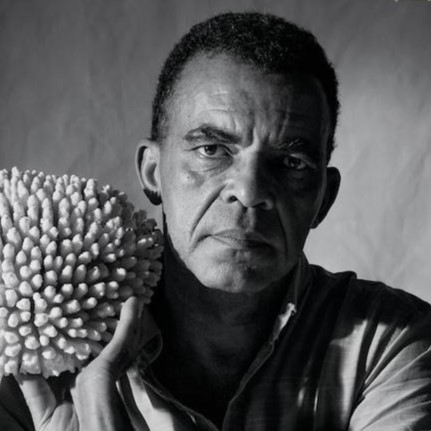 David Obura CORDIO East Africa, Kenya
David Obura CORDIO East Africa, KenyaDavid Obura chairs the Intergovernmental Platform on Biodiversity and Ecosystem Services (IPBES) and is Founding Director of CORDIO East Africa. After 30 years of research on coral reef vulnerability to climate change and their importance to society, his focus is now on linking local to global challenges to help society pivot towards a safe and just future.
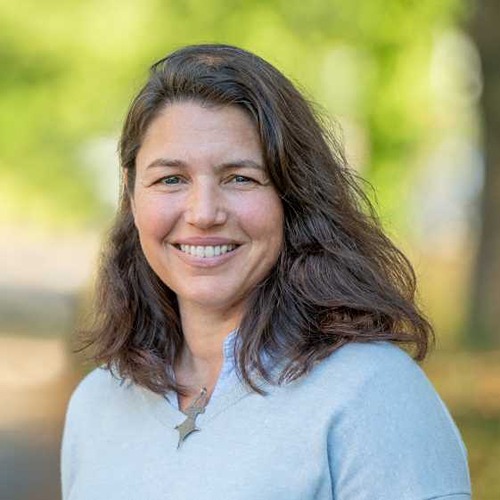 Iliana Baums Helmholtz Institute for Functional Marine Biodiversity (HIFMB) at the University of Oldenburg, Germany
Iliana Baums Helmholtz Institute for Functional Marine Biodiversity (HIFMB) at the University of Oldenburg, GermanyProfessor Iliana Baums is vice director and head of the marine conservation department at the Helmholtz Institute for Functional Marine Biodiversity (HIFMB) at the University of Oldenburg, Germany. She is a leading expert on coral conservation genetics founded on her studies of the molecular evolution and ecology of corals and their symbionts. Over the past ten years, her research has focused on discovering the factors that promote and limit the ability of corals to adapt to rapid climate change and develop tools and strategies for effective coral restoration. The Baums lab showed that not only can coral larvae can inherit somatic mutations from their parents, somatic mutations can be used to age long lived coral genets. In an ongoing effort to provide accurate and high-throughput genotyping services and genomic resources to the coral restoration community the Baums lab designed the first commercially available coral genotyping chip. Along with the genotyping chip the team developed an open-access, point-and-click bioinformatics workflow that standardizes the analysis and was the key technological innovation that underpins genetic management of threatened Caribbean coral genets. Baums has contributed to and led international coral conservation working groups. She chairs the ‘genetics and science’ working group of the international Consortium for Reef Conservation and led the development of restoration guidelines for the Caribbean region. She co-chaired a workshop on the failure of sexual recruitment in the Caribbean that developed a service blueprint for the restoration community. Baums also serves on the scientific advisory board of SECORE, the Sexual Coral Reproduction Foundation, a conservation initiative.
Baums has co-authored over 100 articles in peer-reviewed journals and books and has delivered presentations on her research around the world. She was elected as a fellow of the International Coral Reef Society in 2024 and has received numerous prizes for her work. Baums joined the Helmholtz Institute for functional marine biodiversity at the University of Oldenburg as a Professor and Group leader in Marine Conservation in September of 2022. Previously, she was a full professor of Biology at the Pennsylvania State University. She had joined Penn State in August, 2006, as an assistant professor of biology. Prior to that, Baums was an assistant researcher to Dr. Rob Toonen at the University of Hawaii since 2005 and a postdoctoral researcher to Dr. Jack Fell at the University of Miami from 2004 to 2005. She earned her doctorate degree at the University of Miami in 2003 and her Diplom in marine biology from the University of Bremen in Germany in 2000.
Mark Spalding The Nature Conservancy, Italy, and the University of Cambridge, UKMark Spalding is a Senior Marine Scientist at The Nature Conservancy and also an Honorary Research Fellow at the University of Cambridge. He has led the field in understanding large scale patterns in coral reefs, commencing with global maps (he published the World Atlas of Coral Reefs in 2001), and followed by assessments of biogeography, reef health and key threats (Reefs at Risk). For the last decade his work has focused more closely on mapping the ecosystem service benefits of coral reefs (tourism, coastal protection and fisheries enhancement), believing that better communication of these values will support conservation efforts, while also supporting human well-being. His work has also led him into global assessments of mangroves forests and seagrass ecosystems. He has authored multiple books and over 100 peer reviewed publications.
While large-scale mapping and modelling is central, Mark has also remained grounded, notably with his work in the Chagos Archipelago which he calls the last coral reef wilderness, and which he has visited regularly since 1996. He is passionate to support its future management, as this Archipelago transitions to Mauritian jurisdiction in 2026.
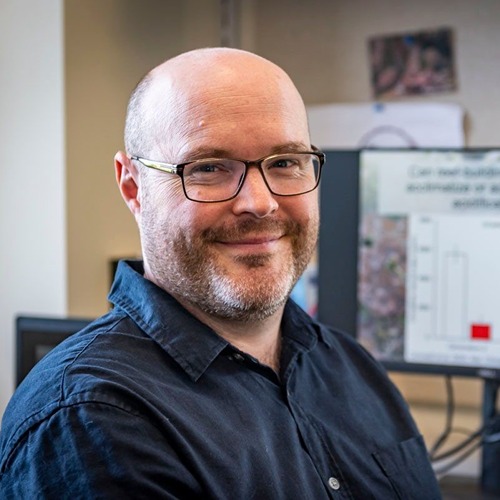 Christopher Cornwall Te Herenga Waka Victoria University of Wellington, New Zealand
Christopher Cornwall Te Herenga Waka Victoria University of Wellington, New ZealandI examine how kelp forests and coral reefs function today and how this will be altered by future climate change. Recent work focuses on determining mechanisms of resistance/tolerance against climate change exploring the role of organism physiological, adaptive/acclamatory processes, and environmental interactions. My work combines a strong ecological background with organism physiology to test multiple alternative hypotheses. Recently I have been working on better estimates of future coral reef carbonate production, as well as projecting future ecosystem states.
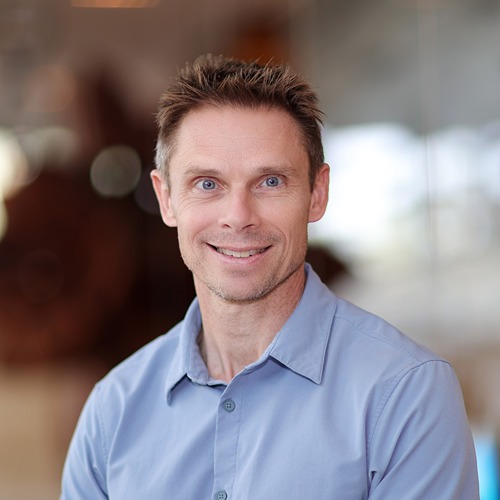 David Suggett King Abdullah University of Science and Technology (KAUST), Saudi Arabia
David Suggett King Abdullah University of Science and Technology (KAUST), Saudi ArabiaProfessor David Suggett is Director for the KAUST Coral Restoration Initiative (KCRI) at Shushah Island, Saudi Arabia – the world’s largest reef restoration effort – and a Professor in Practice at KAUST. He is a world leading expert in coral biology and how corals shape the functioning of reef systems, from scales spanning coral reef microbes to human-ecological interactions. Prior to moving to KAUST in 2023, he was a Professor at University of Technology Sydney, where he established and led the "Future Reefs" Program, Australia's largest team dedicated to unlocking how the environment and climate change influence corals of the Great Barrier Reef – a major focus of which was developing and applying novel technologies for resolving how corals function. This work led to a world-first partnership between researchers and tourism (the largest economic asset to the Great Barrier Reef) to restore degraded sites at scale, the "Coral Nurture Program", which he co-founded and led for 4 years. Work through the Coral Nurture Program has led to innovative methods to propagate and plant coral for reef restoration, and in recognition as a global model for successful targeted reef restoration, become an official Actor for the UN Decade of Ecosystem Restoration in 2022. He has contributed to numerous international committees and workshops for studying and conserving coral reefs, and has served the Coral Restoration Consortium - the international body dedicated to advancing knowledge on reef restoration – in several capacities since 2020. He has been a leading advocate for restoration activities as effective tools within wider reef management frameworks, and where his current role positions global efforts to develop and deploy innovations needed to transform restoration cost-efficiencies and scalability.
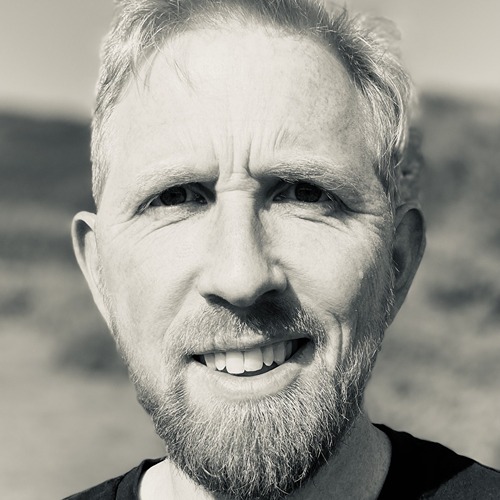 Gareth Williams Bangor University, UK
Gareth Williams Bangor University, UKGareth Williams is Professor of Marine Biology and Director of Research Impact at Bangor University's School of Ocean Sciences, UK. His work focuses on the effects of local and global human impacts and biophysical gradients on coral reefs across multiple trophic levels (microbes to sharks) and scales (individual reefs to entire ocean basins). Much of his work incorporates remote coral reefs free from direct local human impacts, providing key replication at the unimpacted end of an intact-to-degraded ecosystem spectrum. By surveying across extensive geographical areas, his research group address broad questions pertaining to: 1. the human and biophysical drivers of coral reef ecosystem structure and function, 2. climate change impacts to coral reef ecosystems, and 3. the spatial ecology of coral reefs. His recent works have highlighted the impacts of global warming and local human pressures on reef structure and function, the importance of coupled land-sea policies (like wastewater management and fisheries governance) for supporting reef persistence under climate change, and the need to better quantify ocean-reef connections to improve our models and predictions of reef futures.
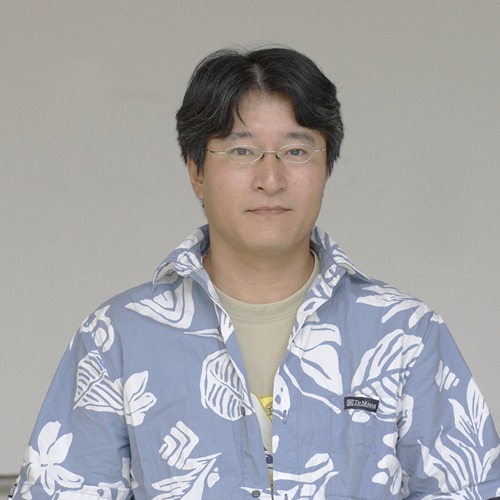 Hiroya Yamano The University of Tokyo / National Institute for Environmental Studies, Japan
Hiroya Yamano The University of Tokyo / National Institute for Environmental Studies, JapanHiroya Yamano is a geographer working on coastal geomorphology and ecosystems, with a focus on coral reefs. Ecosystem dynamics and geomorphic development in response to past and future environmental changes are among his main research interests. His recent work includes climate change impacts on coral reef geomorphology and ecosystem services, and the social adaptations to them.
He served as one of the lead authors for “World Ocean Assessment II” and “IPBES Regional Assessment Report on Biodiversity and Ecosystem Services for Asia and the Pacific.” He also contributed to IPCC SREX in writing the coral bleaching section.
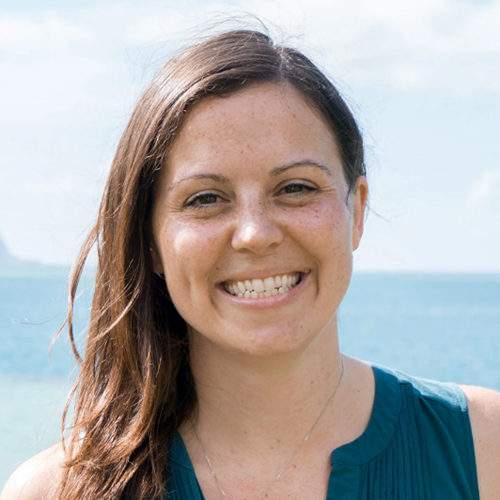 Hollie Putnam The University of Rhode Island, USA
Hollie Putnam The University of Rhode Island, USADr. Hollie M. Putnam is a coral reef biologist and molecular physiologist whose research examines the mechanisms that enable corals and other marine organisms to persist in rapidly changing environments. Her research integrates organismal physiology, genomics, epigenetics, metabolomics, and ecology to identify how environmental history, developmental context, and symbiosis shape resilience across life stages and scales. A central theme of her work is linking molecular regulation, such as gene expression plasticity, DNA methylation, and metabolism, to emergent ecological performance, with the goal of informing reef conservation, restoration, and management under climate change. She is particularly known for advancing experimental frameworks that connect acute stress assays, environmental variability, and multi-omic analyses in tropical reef systems.
Dr. Putnam is the George and Barbara Young Endowed Chair in Biology and Associate Professor in the Department of Biological Sciences at the University of Rhode Island, where she also serves as Department Chair. She earned her PhD from the University of Hawaiʻi at Mānoa and completed an NSF Ocean Sciences Postdoctoral Fellowship at the Hawaiʻi Institute of Marine Biology. Dr. Putnam has led and contributed to large international research collaborations and community-driven science initiatives, including long-term work in French Polynesia through the Moʻorea Coral Reef Long TER and the Reva Atea NGO, where she is the science advisor and co-developed the Toʻa Aroha coral health citizen science program. Her research has resulted in over 150 peer-reviewed publications and more than $12M in collaborative research funding. Dr. Putnam is an International Coral Reef Society Fellow, serves on multiple international science boards, and is deeply committed to inclusive, place-based science, open data resources, and the training of the next generation of coral reef scientists.
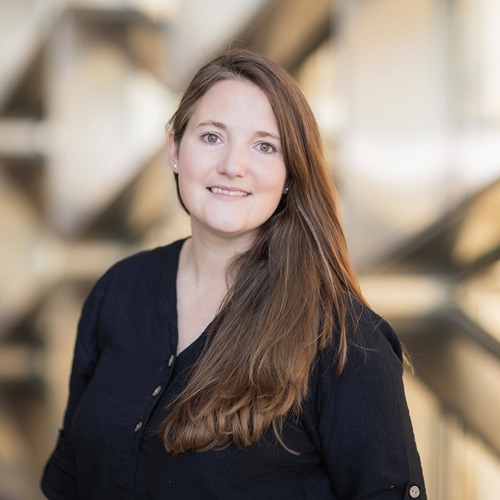 Jessica Zamborain Mason King Abdullah University of Science and Technology (KAUST)Jessica Zamborain-Mason is an Assistant Professor in Marine Science at King Abdullah University of Science and Technology (KAUST) and holds a Department Associate role in Nutrition and Planetary Health at Harvard University. She is an interdisciplinary marine scientist who uses data science and collaboration to assess and enhance the sustainability of coral reef socio-ecological systems in the context of environmental change. Among others, her research combines statistical and mechanistic models with remote sensing and observational data to (i) develop context-specific sustainability targets for reef fisheries, and (ii) quantify the linkages within the socio-ecological system, with a focus on aquatic food systems and public health. Her work aims to increase our understanding of natural resource performance across diverse ecological and socio-economic contexts, and find scalable and implementable management solutions that balance ecosystem integrity and human needs. She does this by bridging disciplines, working at different spatio-temporal scales, and by collaborating with scientists and practitioners around the globe.Jessica leads the Integrated Reef Fisheries Lab at KAUST, a new lab dedicated to advancing the sustainability and resilience of coral reef fisheries and aquatic food systems under climate change. Through collaborative, data-driven research, the lab aims to integrate environmental, ecological, social, and economic data to develop innovative, actionable, climate-resilient solutions that support reef ecosystems, secure people's livelihoods and nutrition, and protect the essential services reefs and other marine ecosystems provide to societies worldwide—now and for generations to come.
Jessica Zamborain Mason King Abdullah University of Science and Technology (KAUST)Jessica Zamborain-Mason is an Assistant Professor in Marine Science at King Abdullah University of Science and Technology (KAUST) and holds a Department Associate role in Nutrition and Planetary Health at Harvard University. She is an interdisciplinary marine scientist who uses data science and collaboration to assess and enhance the sustainability of coral reef socio-ecological systems in the context of environmental change. Among others, her research combines statistical and mechanistic models with remote sensing and observational data to (i) develop context-specific sustainability targets for reef fisheries, and (ii) quantify the linkages within the socio-ecological system, with a focus on aquatic food systems and public health. Her work aims to increase our understanding of natural resource performance across diverse ecological and socio-economic contexts, and find scalable and implementable management solutions that balance ecosystem integrity and human needs. She does this by bridging disciplines, working at different spatio-temporal scales, and by collaborating with scientists and practitioners around the globe.Jessica leads the Integrated Reef Fisheries Lab at KAUST, a new lab dedicated to advancing the sustainability and resilience of coral reef fisheries and aquatic food systems under climate change. Through collaborative, data-driven research, the lab aims to integrate environmental, ecological, social, and economic data to develop innovative, actionable, climate-resilient solutions that support reef ecosystems, secure people's livelihoods and nutrition, and protect the essential services reefs and other marine ecosystems provide to societies worldwide—now and for generations to come.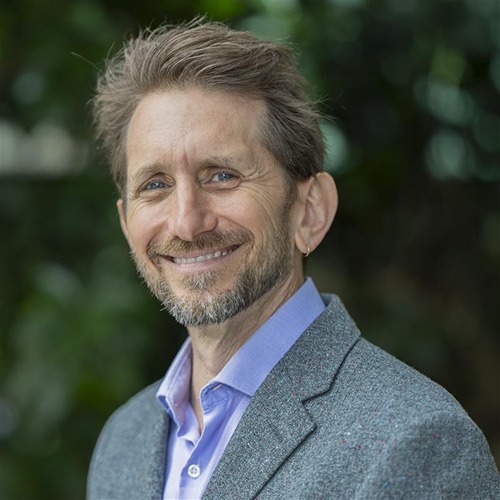 Joshua Cinner The University of Sydney, Australia
Joshua Cinner The University of Sydney, AustraliaJosh Cinner is a Professor of Geography and Australian Laureate Fellow at the University of Sydney, Australia. He began working on coral reefs while serving as a Peace Corps Volunteer in Jamaica in the mid 1990s, and has been at the vanguard of research on the human-dimensions of coral reefs ever since. He has over 200 publications, which include pioneering the bright spots approach on coral reefs, developing the human gravity metric, introducing model-based counterfactuals to quantify the contexts under which conservation is most effective, and spearheading assessments of vulnerability in coastal communities. He has received numerous awards and recognition, including the Pew Marine Fellowship, the Elinor Ostrom award for collective governance of the commons, the Eureka prize for Excellence in Interdisciplinary Research, the Mid-Career award from the International Coral Reef Society, four ARC fellowships, “Highly Cited Researcher” (Clairvate Analytics 2021, 2018), Fellowship in the Academy of Social Science in Australia, and Fellowship in the Queensland Academy of Arts and Sciences. In 2024, Josh moved to Sydney to launch the Thriving Oceans Research Hub- a team of 16 social scientists and ecologists working to increase the sustainability and resilience of coral reefs and the livelihoods of people who depend on them.
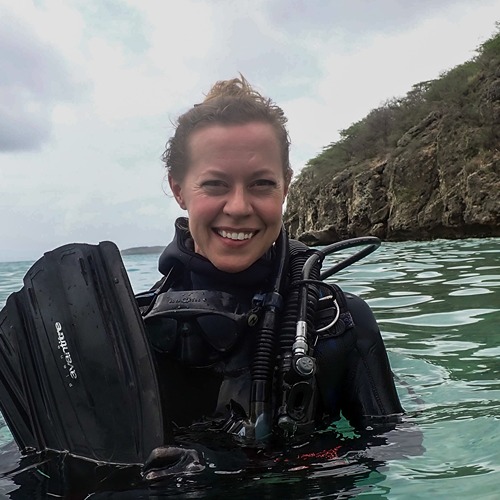 Kristen Marhaver The Marhaver Lab, CARMABI Foundation, Curacao
Kristen Marhaver The Marhaver Lab, CARMABI Foundation, CuracaoBased at CARMABI Foundation in Curacao, The Marhaver Lab works to solve the trickiest puzzles in coral breeding and share the solutions with science and restoration teams worldwide so that everyone can grow more corals, faster. Dr. Marhaver was the first person to raise juveniles of the endangered Caribbean Pillar Coral and the rare, disease-prone Caribbean Pineapple Coral. With collaborators, she helped achieve the first demonstration of assisted gene flow in endangered Elkhorn Coral using cryopreserved sperm. Current projects include breeding understudied coral species, improving fertilization and cryopreservation technologies, and developing engineered materials for reef restoration.
Dr. Marhaver's research has been featured by NPR, BBC, The Economist, Harvard, TED, Google, Mission Blue, and hundreds of other outlets. She is a Pew Fellow in Marine Conservation, a TED Senior Fellow, a National Geographic Explorer, and a World Economic Forum Young Scientist.
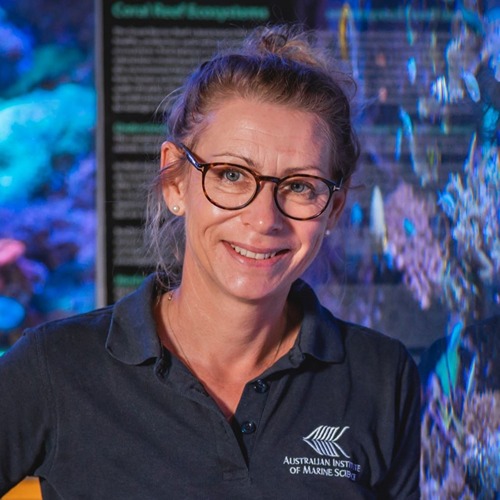 Line K. Bay Australian Institute of Marine Science, Australia
Line K. Bay Australian Institute of Marine Science, AustraliaDr. Line K Bay (Denmark) is a coral reef scientist with nearly 30 years of experience in the field. After completing a PhD in population genetics at James Cook University in 2006, she undertook postdoctoral research in eco-evo coral genomics at the Centre of Excellence for Coral Reef Studies. In 2011 she joined the Australian Institute of Marine Science (AIMS) to lead research on coral adaptation to climate change. Line’s expertise spans genetics, ecology, and evolution of coral reef organisms, with highly cited papers in leading peer-reviewed journals. Line co-designed the Reef Restoration and Adaptation Program (RRAP) and co-led the coral aquaculture and deployment, and genetics sub-programs (2019 - 22). She also led the CORDAP landscape study for natural and assisted evolution in 2023. She now directs AIMS’s research into Reef Recovery, Adaptation and Restoration where ~70 scientists, technical staff, and higher degree students undertake R&D to enhance knowledge and practices for coral restoration and adaptation while delivering tangible training, capacity building and job opportunities in local communities. Passionate about science communication, Line's research has gained significant attention across various media platforms. Committed to ethical and inclusive research, Line champions collaboration among scientists, engineers, practitioners, local communities, and First Nations Peoples.
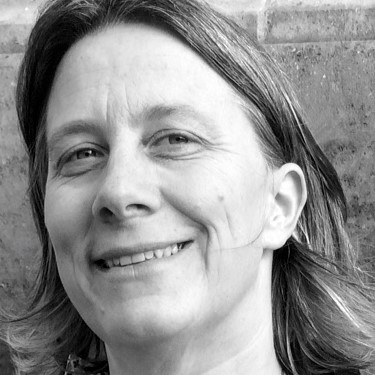 Maria Beger University of Leeds, UK
Maria Beger University of Leeds, UKMaria Beger is Professor in Conservation Science at the University of Leeds, UK, and also holds adjunct appointments at the University of Queensland, Australia, and Universitas Pattimura, Indonesia. She is an expert in delivering innovative ecology-based solutions for environmental management and global change ecology, with a bias towards coral reef and subtropical reef ecosystems. Her research has generated new knowledge on: responses of marine biodiversity to disturbances, chiefly on high-latitude reefs, with focus on functional change of marine communities; incorporating range shifts, evolutionary drivers, and eDNA data into spatial management plans; and evaluating population dynamics in corals, contrasting life history strategies in tropical and subtropical corals. Her research draws on extensive equitable collaborations with scientists from the global south, with new ongoing work in understanding and enhancing adaptation of coral reefs and associated sustainable fisheries in a linked socio-ecological and governance context. She is committed to on-the-ground impact from communities to nations, particularly to address climate related threats. She is a Lead Author in the 7th IPCC Assessment Report.
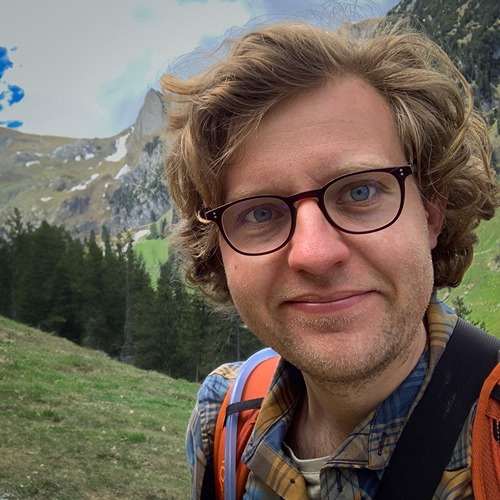 Nils Rädecker Helmholtz Institute for Functional Marine Biodiversity (HIFMB), Germany
Nils Rädecker Helmholtz Institute for Functional Marine Biodiversity (HIFMB), GermanyNils Rädecker is a microbial ecologist whose research focuses on the cellular and molecular mechanisms that govern photosymbioses—intimate partnerships between heterotrophic hosts and their phototrophic endosymbionts. By studying the interplay between metabolic interactions and host immune responses, his work seeks to elucidate the processes underlying the repeated formation of these symbioses throughout evolutionary history and their ongoing ecology collapse in the Anthropocene.
Nils recently established his new research group at the Helmholtz Institute for Functional Marine Biodiversity (HIFMB) in Oldenburg, where he combines latestomics approaches with advanced imaging techniques to understand symbiotic interactions in their spatial context.
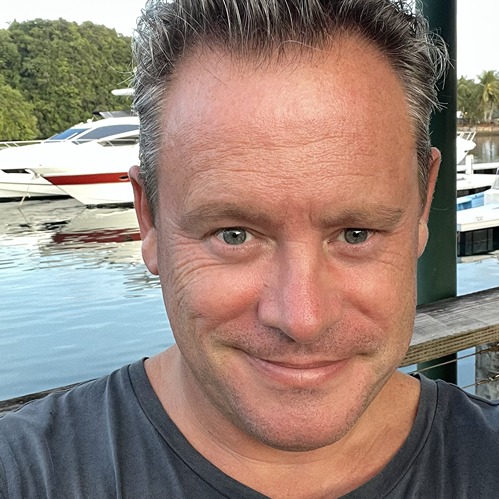 Peter Mumby The University of Queensland, Australia
Peter Mumby The University of Queensland, AustraliaProfessor Peter Mumby began his career helping to design marine reserves in Belize and experienced first hand the limited scientific basis for decision-making. He then began a research pathway with a goal of providing science that can inform practical conservation and management action. His research combines field observations, experiments, and ecological modelling to answer questions about reef ecology, ecosystem resilience, impacts of climate change, marine reserve functioning and design, connectivity of ecosystems, coral reef fisheries, and restoration. Peter undertook a PhD at the University of Sheffield (UK), followed by NERC Post-doctoral Fellowship at the University of Newcastle. He then moved to the University of Exeter on a Royal Society Research Fellowship and later moved to the University of Queensland to take up an ARC Laureate fellowship and set down roots. He has had the pleasure of supporting many PhD students and learned a lot from his post-docs. Peter is a Pew Fellow in Marine Conservation, winner of the inaugural ISRS Mid-Career Award, and a Rosenstiel Award holder for contributions to marine ecology. He has published >400 papers and is an ISI Highly Cited Researcher. He is happiest on a coral reef with a camera in his hands.
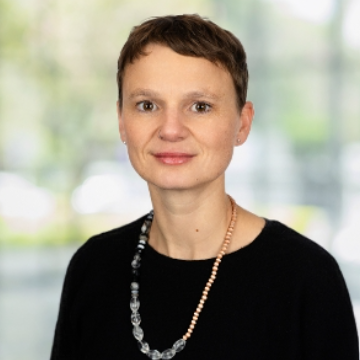 Verena Schoepf University of Amsterdam, The Netherlands
Verena Schoepf University of Amsterdam, The NetherlandsVerena Schoepf is an Associate Professor at the Institute for Biodiversity and Ecosystem Dynamics, Department of Freshwater and Marine Ecology, at the University of Amsterdam. Her research explores how reef-building corals are affected by climate and environmental change. By integrating biogeochemical and eco-physiological analyses, Verena’s research aims to provide new insights into the mechanisms and traits that enable coral resistance to multiple, co-varying climate change stressors and promote their adaptive capacity in a changing ocean. Her research and efforts to communicate science and promote women in STEM have been recognized with several awards, including “ Superstar of STEM ” and a “ Young Tall Poppy Science Award ”. She is also a TEDx speaker and her research on “super corals” was featured in the 2016 documentary series “ Women and Oceans ”. She is currently the Chair of the IBED Diversity, Equity and Inclusion Council, and also serves on the Board of the Women in the Faculty of Science (WiF) Group.
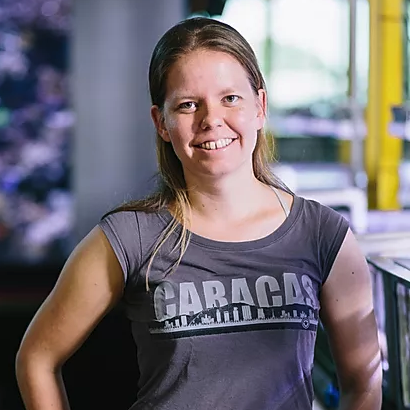 Adriana Humanes Newcastle University, UK
Adriana Humanes Newcastle University, UKAdriana Humanes is a marine ecologist with research experience in experimental ecology, evolution, and climate change impacts on marine ecosystems, with particular expertise in coral sexual propagation, physiology, and restoration. Her research has delivered internationally recognised, ground-breaking contributions to understanding coral heat tolerance, heritability, selective breeding, and adaptive potential under future warming scenarios. Alongside her research expertise, Adriana is deeply committed to mentorship, leadership, and collaborative science. She has supervised postgraduate students to completion, applying inclusive, equity-focused mentoring practices that have supported trainees in securing prestigious scholarships and positions across academia and government. Her work spans multiple countries and disciplines, with strong partnerships across universities, NGOs, and reef management organisations, including leadership of a flagship project co-developing Climate-Smart Adaptive Management Actions for coral reefs in Palau. Adriana has also led and organised high-impact workshops connecting science, policy, and stakeholders, resulting in practical management frameworks, policy-relevant roadmaps, and public engagement outputs. Beyond academia, her research has informed reef management policy, featured in numerous policy documents, and reached broad audiences through media engagement, lifelong learning, and the co-authorship of a book for children, reflecting her commitment to delivering societal benefit through science.
 Elisa Khoo National University of Singapore, Singapore
Elisa Khoo National University of Singapore, SingaporeElisa Khoo is a recent graduate of the Law and Life Sciences double-degree program at the National University of Singapore, and is now a lawyer in training at Amica Law LLC, practising intellectual property law. She has been working closely with the Asia Pacific Centre for Environmental Law and volunteers at the Singapore Oceanarium in her free time. Her research focuses on bridging scientific disciplines with practical legal realities. Specifically, her broad interests include environmental law and intellectual property, anything really, that allows her to find interactions across, and discuss lacunas between disciplines. She has presented her research at several international conferences on topics such as constitutional law in affording environmental protections and collective human rights to a healthy environment. One of her current aims is to examine how courts around the world translate reef injury into legal standards of proof and compensation, which is what she seeks to discuss at Corals, Coasts and One Health. Her current favourite coral is the Lettuce Coral (Agaricia agaricites).
 Jack Gilbert Scripps Institution of Oceanography, USAJack Gilbert is a Professor of Microbial Oceanography in the Center for Marine Biotechnology and Biomedicine at Scripps Institution of Oceanography and holds a joint appointment in the Department of Pediatrics in UCSD School of Medicine. Research interests in the Gilbert lab focus on microbial evolution, ecology and biogeography, host-microbe-environment interactions, human and environmental disease ecology, and human immune, nervous system and nutritional health.
Jack Gilbert Scripps Institution of Oceanography, USAJack Gilbert is a Professor of Microbial Oceanography in the Center for Marine Biotechnology and Biomedicine at Scripps Institution of Oceanography and holds a joint appointment in the Department of Pediatrics in UCSD School of Medicine. Research interests in the Gilbert lab focus on microbial evolution, ecology and biogeography, host-microbe-environment interactions, human and environmental disease ecology, and human immune, nervous system and nutritional health.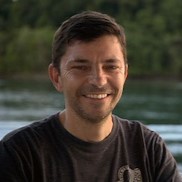 James Guest Newcastle University, UK
James Guest Newcastle University, UKMy research interests are diverse within coral reef science and include diseases, reproductive and larval ecology, recruitment dynamics, long term community change, bleaching and restoration ecology and include use of various techniques ranging from large scale manipulative field ecology experiments to molecular biology methods including fluorescent in situ hybridisation (FISH) and next generation sequencing of coral symbionts. I have lived in five countries and worked with a diverse group of scientists from a range of disciplines in large, international multi-disciplinary research groups. For example, between 2005 and 2008 I was employed by Newcastle University (UK) as part of an international European Union funded project, involving a consortium of scientists from six countries, to investigate reef restoration techniques on degraded reefs in the Philippines. I was also appointed as a member of the Reef Restoration Working Group of the Coral Reef Targeted Research program of the World Bank-Global Environment Facility (GEF-CRTR, www.gefcoral.org), a multi-million dollar five year incentive to investigate some of the most pressing problems facing coral reefs. An impact case study based on this work received a 4 star rating in the 2014 Research Excellence Framework indicative of research quality that is world-leading in terms of originality, significance and rigour. I was awarded a prestigious three year Lee Kuan Yew Postdoctoral Fellowship in 2009 and between 2012 and 2014 held a senior research fellowship jointly with the University of New South Wales and Nanyang Technological University in Singapore (NTU) to coordinate multidisciplinary research activities among a group of 17 marine ecologists and molecular biologists from Australia and Singapore. During 2016 and 2017 I was a Powell Center Fellow at the University of Hawai'i's Institute of Marine Biology, investigating methods of identifying resilient coral reefs against a backdrop of degradation. From 2017 to 2022 I led a European Research Council Consolidator Grant at Newcastle University to bring together the various branches of my research and to assemble a world class research team to tackle questions facing tropical coral reefs. I am currently a Reader in Coral Reef Ecology and lead the Coralassist Lab at Newcastle University.
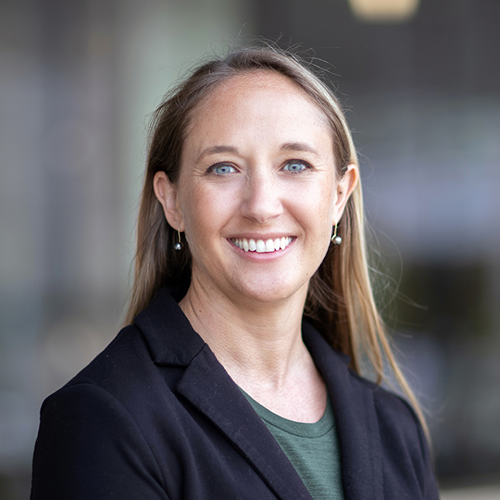 Maggie Johnson KAUST, Saudi Arabia
Maggie Johnson KAUST, Saudi ArabiaProfessor Maggie Johnson's research focuses on understanding how coral reefs are changing in the Anthropocene, with a particular focus on understanding the roles of key algal taxa on coral reefs (e.g., crustose coralline algae) and evaluating how their functions are influenced by environmental change. She is particularly interested in how warming temperatures, ocean acidification, and deoxygenation are altering the structure and functioning of coral reef habitats. By focusing on algae- the understudied reef-builders on coral reefs- her work fills gaps critical gaps in our understanding of the current and future face of reef ecosystems. Prior to joining KAUST in 2021, she was a postdoctoral scholar at Woods Hole Oceanographic Institution, U.S., and the Smithsonian Institution, where she led some of the first research into effects of deoxygenation on stony corals. She holds a Research Associate appointment with the Smithsonian Tropical Research Institute in Panama, where she continues her work on degraded Caribbean coral reefs - in addition to her work in the tropical Central Pacific Ocean and throughout the Red Sea. She is an elected representative to the International Coral Reef Society and the Journal of Phycology, and a standing member of the Phycological Society of America.
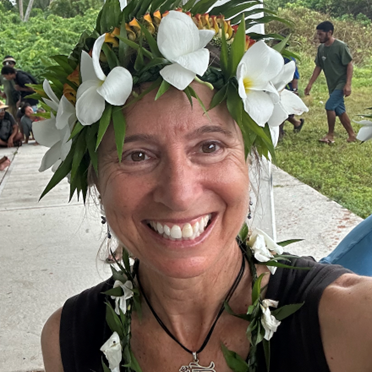 Nicole Crane Smith Fellowship/Society for Conservation Biology and One People One Reef
Nicole Crane Smith Fellowship/Society for Conservation Biology and One People One ReefNicole is a Senior Conservation Scientist and co-lead with One People One Reef and Executive Director of the David H Smith Conservation Research Fellowship in partnership with the Society for Conservation Biology, a program that supports applied conservation postdoctoral fellows. Her primary areas of conservation focus are on community led coral reef conservation and management, developing and applying tools for coral reef assessments, and weaving traditional and western knowledge systems into conservation planning. The One People One Reef collaborative is focused on authentic collaboration and co-creation of action plans with indigenous and local communities, aimed at protecting and restoring reefs and the people who rely on them. She was the founder, PI and Director of the National Science Foundation Center for Excellence in Marine Advanced Technology Education and PI/Executive Director for Camp SEA Lab. Nicole is an associate at the California Academy of Sciences, a National Geographic Explorer and a Fellow National at the Explorers Club. She was a faculty and program director in the California Community College system for 27 years, including at Cabrillo College for 20 years.
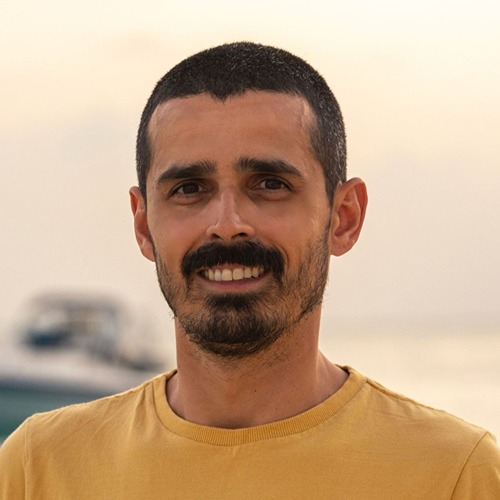 Renato Morais Paris Sciences and Letters University, FranceAfter a PhD (2016-2020) and post-doc (2020-2022) on coral reef ecosystem functioning and fish productivity at James Cook University (Australia) supervised by Prof. David Bellwood, I was awarded a Branco Weiss Fellowship (BWF) to start my independent research program. For this position, I moved to CRIOBE in 2022 as part of EPHE-PSL (France), working with Prof. Valeriano Parravicini on ecosystem functions on coral reefs and beyond. This research has investigated the role of the surrounding seascape for the productivity of tropical reefs, from quantifying the ‘energetic footprint’ of animal biomass, to determining links with the open ocean, and the mechanisms that maintain these links. The guiding hypothesis is that reef productivity should be understood as an outcome of internal and external energetic pathways connecting photosynthesis to biomass production, with ocean-reef connections being key. The overarching goal has been to develop predictive models linking environment and biomass production for ecology and fisheries applications. During my BWF tenure, my research has also expanded beyond coral reefs to investigate the drivers of ecosystem productivity across the biosphere, with a focus on what makes coral reefs such distinctive hotspots of biological productivity—both today and over the last 550 million years. In January 2026, I started as Assistant Professor of Marine Science at KAUST: the ROCKHub, Reef-Ocean Connectivity Knowledge Hub, is now looking for enthusiastic members!
Renato Morais Paris Sciences and Letters University, FranceAfter a PhD (2016-2020) and post-doc (2020-2022) on coral reef ecosystem functioning and fish productivity at James Cook University (Australia) supervised by Prof. David Bellwood, I was awarded a Branco Weiss Fellowship (BWF) to start my independent research program. For this position, I moved to CRIOBE in 2022 as part of EPHE-PSL (France), working with Prof. Valeriano Parravicini on ecosystem functions on coral reefs and beyond. This research has investigated the role of the surrounding seascape for the productivity of tropical reefs, from quantifying the ‘energetic footprint’ of animal biomass, to determining links with the open ocean, and the mechanisms that maintain these links. The guiding hypothesis is that reef productivity should be understood as an outcome of internal and external energetic pathways connecting photosynthesis to biomass production, with ocean-reef connections being key. The overarching goal has been to develop predictive models linking environment and biomass production for ecology and fisheries applications. During my BWF tenure, my research has also expanded beyond coral reefs to investigate the drivers of ecosystem productivity across the biosphere, with a focus on what makes coral reefs such distinctive hotspots of biological productivity—both today and over the last 550 million years. In January 2026, I started as Assistant Professor of Marine Science at KAUST: the ROCKHub, Reef-Ocean Connectivity Knowledge Hub, is now looking for enthusiastic members!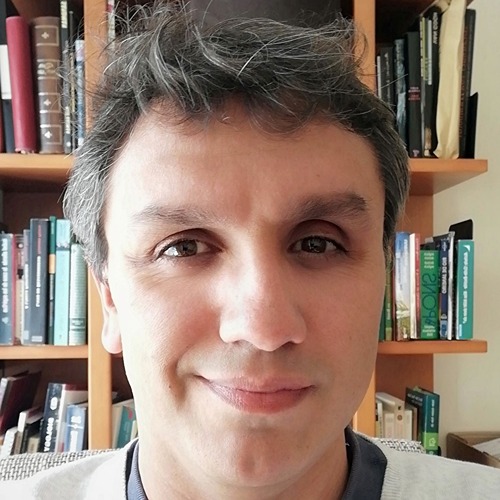 Rodrigo Costa Instituto Superior Técnico (IST), University of Lisbon
Rodrigo Costa Instituto Superior Técnico (IST), University of LisbonRodrigo Costa is an Associate Professor at the Department of Bioengineering, Instituto Superior Técnico (IST), University of Lisbon. After earning his Ph.D. in Germany and completing postdoctoral work in The Netherlands, he established the "Microbial Ecology and Evolution" group in Portugal, securing over €3.8M in research funding. A former affiliate of the Lawrence Berkeley National Laboratory (USA), he currently serves as the Portuguese Ambassador for the International Society for Microbial Ecology (ISME) and as Senior Editor for ISME Communications.
As an award-winning educator in Ecology and Microbiomes, Prof. Costa’s research explores the diversity and function of microorganisms in natural and fabricated biomes, with a specific focus on eukaryote-prokaryote symbioses and metagenomics. His work investigates how these interactions influence host and ecosystem health, climate regulation, and blue biotechnology. He has authored over 130 publications, supervised over 40 graduate theses and previously advised the Portuguese Government on developing the Blue Biotechnology sector.
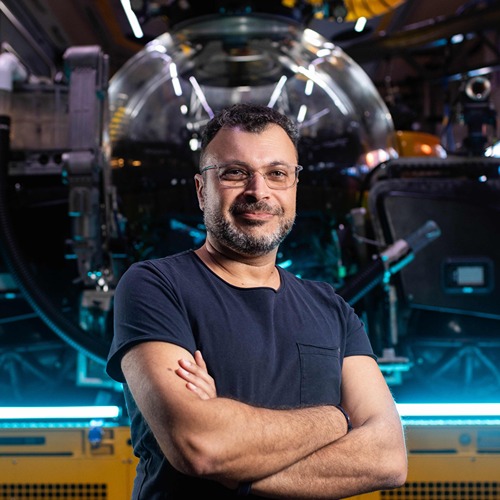 Shady Amin New York University Abu Dhabi, United Arab Emirates
Shady Amin New York University Abu Dhabi, United Arab EmiratesProf. Shady Amin is interested in studying symbiotic relationships between eukaryotes and their microbiome in aquatic ecosystems and their importance to ecosystem function, the evolution of the eukaryotic cell, and the effect climate change has on these critical interactions. During his doctoral studies with the late Prof. Carl Carrano at UC San Diego/San Diego State University, he showed that some marine bacteria can provide bioavailable iron to their dinoflagellate and diatom hosts, which may enable these algal lineages to grow in large swaths of the oceans that are iron limited. During his postdoctoral work with Prof. Ginger Armbrust at the University of Washington, he uncovered a widespread signaling mechanism between diatoms and members of their microbiome based on the hormone indole-acetate. In 2015, he joined NYU in its Abu Dhabi campus, where his lab, the Marine Microbiomics Lab, studies the influence of the microbiome on phytoplankton physiology and implications to global biogeochemistry, the role the coral microbiome plays in coral adaptation to climate change, the biogeochemistry of the Arabian Gulf, harmful algal blooms, and utilizing marine microbes to heal cement and reduce soil erosion.
 Emma Ransome Imperial College London
Emma Ransome Imperial College LondonEmma is an Associate Professor at Imperial College London, based in the Department of Life Sciences at Silwood Park. She completed her PhD on the effects of global change on coral-microbe associations at Plymouth Marine Laboratory (and the University of Plymouth), UK, in 2013. Emma then moved to the Smithsonian National Museum of Natural History in Washington DC, USA for her first postdoctoral position, where she worked on the biodiversity and biogeography of cryptic reef communities across the Pacific. In 2016 she returned to the UK to take a postdoctoral position at Imperial College London investigating the effects of global warming on freshwater microbes. This led to a Researcher Co-Investigator role on the NERC grant “A novel framework for predicting emerging chemical stressor impacts in complex ecosystems”, in 2019. Emma started her lectureship at Imperial College London in January 2020.
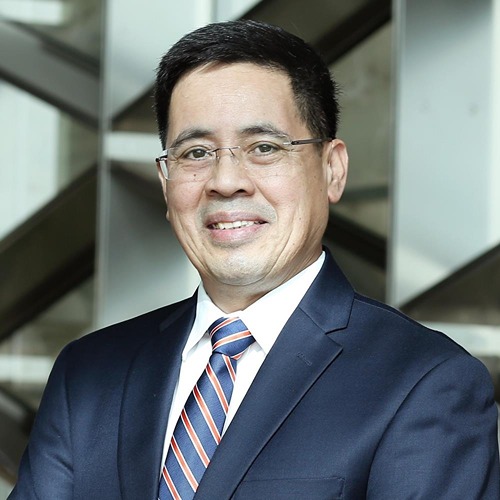 Teofilo Abrajano King Abdullah University of Science and Technology (KAUST)
Teofilo Abrajano King Abdullah University of Science and Technology (KAUST)

